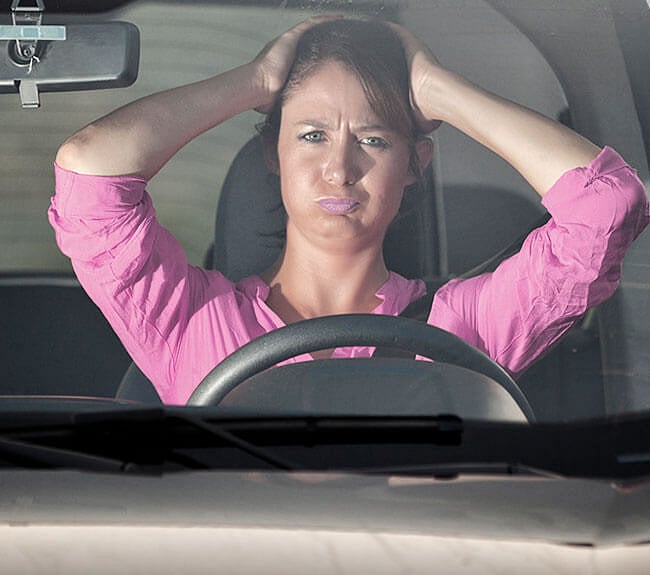
Your Car Insurance Claim Can Be Rejected if You Do These 10 Things
Your Car Insurance Claim Can Be Rejected if You Do These 10 Things
When you've dutifully paid for car insurance for years, you may assume that insurers will consider your long-standing relationship with them when you eventually make a claim. In reality, you may find that things go differently, and instead of receiving a payout, you could find your car insurance claim rejected. Discover more about car insurance claim rejection reasons as First for Women discusses these mistakes in more detail.
What does rejection mean in a car insurance claim?
According to the South African Ombudsmanfor Short-term Insurance, car insurers rejected a record number of claims[1] last year. A rejection means your claim won't be processed because you failed to honour your car insurance policy's contractual obligations. A rejection differs from a claim denial, which means that although your claim was valid, it's being rejected because your policy excludes it.
10 common car insurance claim rejection reasons
Take a look at these 10 things that could get your car insurance claim rejected:
1. Not paying your premiums
You can accidentally miss a premium payment and have your debit order bounce when you get a new salary date if the deduction date falls on a public holiday or you forget to renew your coverage when it expires. Your insurance can be completely cancelled if you don't make a payment arrangement during the grace period. You can prevent this by checking that your debit orders go off on the right day or by paying your premium manually if you get paid on different dates.
2. Delaying filing your car insurance claim
There's never a convenient time to have your car break down or experience an accident. Unfortunately, you have a given time frame to lodge a car insurance claim. Otherwise, your claim will be rejected.
3. Providing incorrect information with your claim
Keeping your policy information and claim details up-to-date and accurate will prevent you from inadvertently providing incorrect information. Your insurer should be informed of any change that impacts your risk factors. This could include a home move or beefed-up car security.
4. Allowing an undesignated person to drive your car
It's common for households to share a vehicle out of convenience or necessity. There's no problem with this, but it adds another person to the picture, and their risk profile could significantly differ from yours. If this person has an accident in your car, insurers may reject your claim outright unless you've added them as an official secondary driver.
5. Not keeping your vehicle roadworthy
Honouring your vehicle's service and maintenance schedule shows you've played your part in keeping your car in good condition.
6. Neglecting your initial insurance inspection
Insurers sometimes require a vehicle inspection when you first take out insurance to determine the state of your vehicle. This means you must bring your car in for a physical inspection, which many people delay.
7. Driving recklessly or under the influence
Driving intoxicated is unwise — not just because you could harm yourself and others. Just because you feel fine after a few beers don't mean you're sober enough to drive, and breathalysers use your blood alcohol levels and not your behaviour to determine if you're over the limit — which is breath alcohol 0.24mg per 1,000ml or blood alcohol limit of 0.05g per 100ml. With ridesharing services widely available and affordable, there's no reason for you to drive at all in this state. Similarly, texting while driving is considered reckless and puts you in the wrong.
8. Leaving the scene of an accident
It's normal to panic and feel confused after a car accident. Even if you're unharmed and your car still functions, you must stay at the scene until the police arrive.
9. Insufficient car insurance cover
It's essential to know what your policy does and doesn't cover. For example, if you finance your car, having a write-off cover ensures you don't owe the financier any money. The right coverage will also repair damage indirectly caused by primary car accident damage. Business vehicles will also require specialised cover because your claim can be rejected if a claim involves using a private vehicle in a business capacity.
10. Neglecting car security measures
Your insurer may require that you install security measures in your vehicle, like a tracking device. Not doing this can create avoidable risk that leads to a claim rejection.
Discover more about How to submit an insurance claim with First for Women.
What to do if your car insurance claim is rejected?
If your insurer has rejected your claim for car insurance, you can follow certain steps to dispute their decision. Follow your insurer's complaint process and submit a written account of the dispute with any other required documents. If this fails, you can organise an assessment from an independent loss adjuster, who will make an impartial report and send it to your insurers. You can also escalate the issue to the Ombudsman for Short-Term Insurance by following their processes or seeking legal advice, potentially landing the matter in court.
Get a quote for car insurance from First for Women
Don’t make these mistakes when submitting a car insurance claim. Follow our tips on how to ensure you achieve a successful claim. First for Women offers a range of car insurance options. Apply for a quick, hassle-free car insurance quote online.

We Have Great
Insurance Products
At 1st for Women we know that each
woman is an individual who has
different needs.
More Content
Most popular

Insurance
How to Submit an Insurance Claim with First for Women?

Insurance
Your Car Insurance Claim Can Be Rejected if You Do These 10 Things
Latest posts
Related Posts


